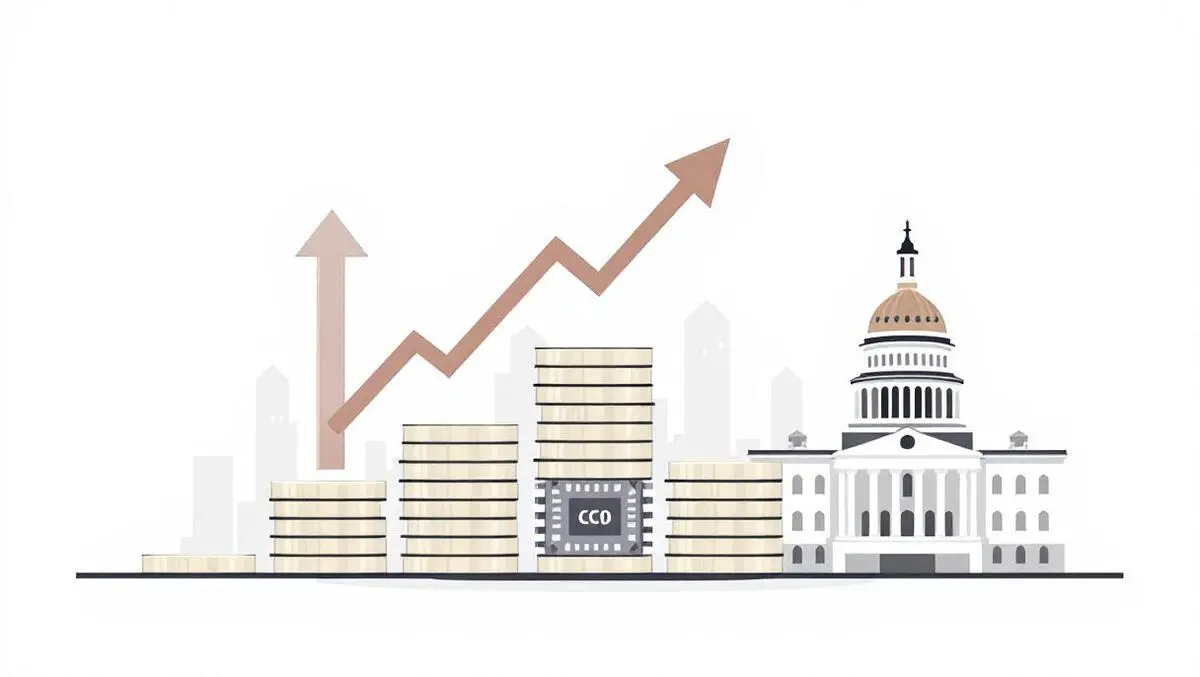
Record investment & policy headline Stanford's AI report
The pace of progress in artificial intelligence has accelerated to historic highs, with breakthroughs in technical capabilities, adoption across sectors, and global governance, according to the latest Artificial Intelligence Index Report 2025 from Stanford University's Institute for Human-Centreed Artificial Intelligence (HAI).
The eighth edition of the report describes 2024 as a pivotal year, marked by "unprecedented" leaps in AI performance, new records in private investment, and intensifying government involvement. "The 2025 Index is our most comprehensive to date and arrives at an important moment, as AI's influence across society, the economy, and global governance continues to intensify," write co-directors Yolanda Gil and Raymond Perrault in their introduction. "AI is no longer just a story of what's possible - it's a story of what's happening now and how we are collectively shaping the future of humanity."
Record growth in performance and usage
AI models continue to outperform previous benchmarks at a rapid rate. In the past year alone, performance rose by 18.8 percentage points on the MMMU benchmark, 48.9 points on GPQA, and 67.3 points on the SWE-bench, which tests advanced coding tasks. The report finds that "AI systems made major strides in generating high-quality video, and in some settings, language model agents even outperformed humans in programming tasks with limited time budgets."
AI is also increasingly present in everyday life, particularly in healthcare and transportation. In 2023, the US Food and Drug Administration approved 223 AI-enabled medical devices, up from just six in 2015. Meanwhile, autonomous vehicle usage has scaled up: "Waymo, one of the largest US operators, provides over 150,000 autonomous rides each week, while Baidu's affordable Apollo Go robotaxi fleet now serves numerous cities across China."
Investment and industry adoption surge
Private investment in AI hit new highs in 2024. According to the report, "US private AI investment grew to $109.1 billion - nearly 12 times China's $9.3 billion and 24 times the UK's $4.5 billion. Generative AI saw particularly strong momentum, attracting $33.9 billion globally in private investment - an 18.7% increase from 2023."
Business adoption of AI is also accelerating: "78% of organisations reported using AI in 2024, up from 55% the year before." The report cites research showing that "AI boosts productivity and, in most cases, helps narrow skill gaps across the workforce." The sector has experienced "dramatic expansion over the past decade, with total investment growing more than thirteenfold since 2014."
Global leadership and competition
While the US remains the leader in producing top AI models, China is rapidly closing the performance gap. In 2024, US-based institutions produced 40 notable AI models, compared to China's 15. However, "Chinese models have rapidly closed the quality gap: performance differences on major benchmarks such as MMLU and HumanEval shrank from double digits in 2023 to near parity in 2024," the report finds.
China also leads in the number of AI research publications and patents, accounting for 69.7% of all AI patent grants in 2023. "Between 2010 and 2023, the number of AI patents has grown steadily and significantly, ballooning from 3,833 to 122,511. In just the last year, the number of AI patents has risen 29.6%," the authors note.
Policy, regulation and public attitudes
Governments are stepping up both investment and regulation. In 2024, US federal agencies introduced 59 AI-related regulations, more than double the number in 2023. Canada, China, France, India, and Saudi Arabia all announced major national AI investment packages, ranging from $1.25 billion to $100 billion. "Legislative mentions of AI rose 21.3% across 75 countries since 2023, marking a ninefold increase since 2016," the report states.
Despite the optimism, trust and bias remain challenges. The report finds "fewer people believe AI companies will safeguard their data, and concerns about fairness and bias persist. Misinformation continues to pose risks, particularly in elections and the proliferation of deepfakes." In response, governments and international organisations are "advancing new regulatory frameworks aimed at promoting transparency, accountability, and fairness."
A global survey in 2024 found notable regional divides in public optimism about AI. In China, Indonesia, and Thailand, more than 75% of respondents viewed AI as more beneficial than harmful, compared to just 40% in Canada and 39% in the United States. Still, optimism is rising: "Since 2022, optimism has grown significantly in several previously sceptical countries, including Germany (+10%), France (+10%), Canada (+8%), Great Britain (+8%), and the United States (+4%)."
The path forward
Looking ahead, the AI Index calls for continued vigilance, collaboration and data-driven policymaking. "In a world where AI is discussed everywhere - from boardrooms to kitchen tables - this mission has never been more essential," write the co-directors. "Longitudinal tracking remains at the heart of our mission. In a domain advancing at breakneck speed, the Index provides essential context - helping us understand where AI stands today, how it got here, and where it may be headed next."


